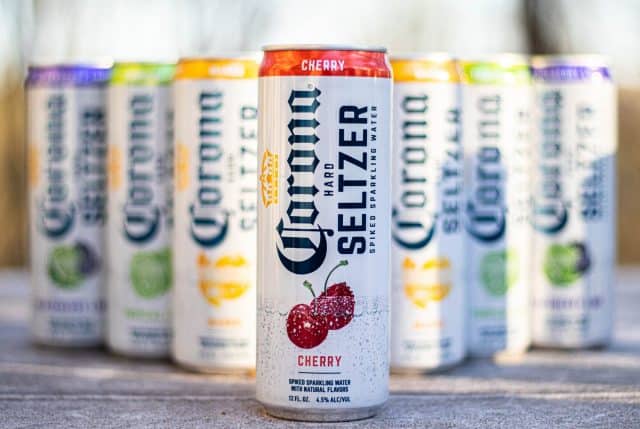
What is beer? It was defined as early as 1516 in Bavaria’s Reinheistsgebot, the famous purity law which classified it as a beverage produced solely from water, barley and yeast.
But the definition of what a beer is has certainly evolved over the years and with the advent of craft beer its possibilities exploded. But with the introduction of White Claw Hard Seltzer the definition of what a beer is has become even more muddled.
Which brings us to an ongoing legal battle between Anheuser Busch InBev, the #1 brewer in the world with a stock market value of around US$90 billion, and Constellation Brands who produce and distribute the Corona Beer in the US.
Grupo Modelo, which is owned by AB InBev brews Corona for every country in the world but the US. Bowing to US trade regulators demands the world’s biggest beer company was forced to sell the US rights to Constellation Brands when it bought the remainder of Mexico’s Modelo group back in 2013.
“That deal transformed the fortunes of Constellation. The wine and spirits company has become the leading brewer and distributor of premium Mexican beers in the US.” 80% of its business is now based on beer,” according to Drinks Business. In 2020 the Corona Brand family was the fourth best-selling brand in the US, generating $1.684 billion for the company.

(Courtesy Corona)
Then Constellation introduced Corona Hard Seltzer and a Big Beer war that revolved around the definition of what a beer is….And that battle is finally going to trial.
On February 21, 2021, AB InBev-owned Grupo Modelo filed a Federal lawsuit alleging that US drinks giant Constellation Brands had breached its deal with the company when it extended the Corona brand name to Corona Hard Seltzer, which the Victor, NY-based beer, wine and spirits producer introduced last year.
The majority of hard seltzers are produced from either a brewed-malt (“clear malt”) or brewed-sugar (where 100% of the fermentables are derived from non-malt sugar) base, with carbonated water and added flavor.
Under Alcohol and Tobacco Tax and Trade Bureau (TTB) regulations, both malt- and sugar-based hard seltzers are considered “beer.”
Responding to the February 15th filing, which was made in the U.S. district court of the southern district of New York, Constellation said it had “fully and completely” complied with the terms of the sub-license agreement and would vigorously defend its rights and that AB InBev’s argument that seltzer should not be classified as a beer, were meritless and an attempt to restrain a strong competitor.
According to US News Corona Hard Seltzer which launched in February 2020, has “a 6% share of the US seltzer market, making it the fourth-biggest brand in the segment,” behind “Mark Anthony Brands’ White Claw, Boston Beer’s Truly and Anheuser-Busch’s Bud Light Seltzer.”
Last week, AB InBev was back in a New York court pleading that Constellation’s hard seltzer is “a malt-free no-hops flavor drink emulating vodka and soda” and that it is not a beer under the terms of the 2013 licensing agreement.
US District Judge Lewis Kaplan said that AB InBev’s interpretation of the agreement would be “at least a reasonable reading” and refused to throw out AB InBev’s plea as Constellation had requested.
On December 14 Kaplan determined that Modelo’s argument may be stronger, but that the agreement’s definition of “beer” was still too ambiguous.
“Modelo has more dictionaries on its side of this debate over the meaning of ‘beer’ than does CBI,” Kaplan said. “But the fact remains that dictionaries, however important, do not resolve this case.”
So this case will now be in the hands of a jury who will ultimately decide whether hard seltzer might legitimately be considered beer.
###
 American Craft Beer The Best Craft Beer, Breweries, Bars, Brewpubs, Beer Stores, And Restaurants Serving Serious Beer.
American Craft Beer The Best Craft Beer, Breweries, Bars, Brewpubs, Beer Stores, And Restaurants Serving Serious Beer.
